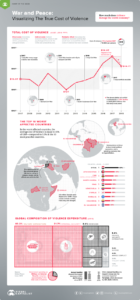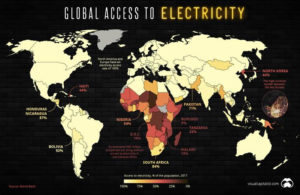Market Action
By the end of the week global equities recovered from losses earlier in the week. This was partially due to a very strong US employment report. The strong data also pushed yields 8 basis points higher on the US 10-year Treasury note. A barrel of West Texas Intermediate crude oil rose $1.50 to $58.75 and volatility, as measured by the Chicago Board Options Exchange Volatility Index, rose to 13.75 from 12.25 a week ago.
In November, the US economy added 266,000 jobs, exceeding forecasts of only 180,000 jobs gained. The unemployment rate fell back to 3.5%, matching the 50-year low and average hourly earnings expanded 3.1% last month, all giving the impression that the US economy is weathering the impact of the ongoing US-China trade war.
Members of the Organization of Petroleum Exporting Countries (OPEC) are thinking about cutting production by 400,000 barrels of crude oil per day in an effort to support oil prices. This trimming would expand the 1.2 million barrel output curb put in place in 2017. OPEC members are meeting in Vienna this week to discuss.
This week US President Donald Trump announced the US would reimpose aluminum and steel tariffs on Brazil and Argentina for, what the President has deemed, currency manipulation. President Trump says the currency devaluations have negatively impacted US farmers. In addition, President Trump as proposed tariffs of up to 100% on $2.4 billion worth of French luxury goods in retaliation for France’s new 3% digital services tax, which impacts several US tech giants.
Pension reform in France triggered a massive strike that turned violent on Thursday as protestors took to the streets. President Emmanuel Macron proposes to replace the current public and private schemes with a universal system for all workers. The cost of the current French pension system is about 14% of GDP, making it one of the highest in the world, while the retirement age of 62 is among the lowest.
Turkey’s parliament and Libya’s presidential council approved a memorandum of understanding which demarcates an 18.6-nautical mile line that will form the maritime boundary separating the two countries’ exclusive economic zones. The agreement has sparked tension and the possibility of war in the region with other countries who have claims, especially in the Aegean and Eastern Mediterranean areas.
What Could Affect the Markets in the Days and Weeks Ahead
Next week is the much-anticipated British general election which will, essentially, show how Britons want Brexit to proceed or if they don’t want it to move forward at all. Opinion polls are showing that Prime Minister Boris Johnson’s Conservative party has the lead which has fueled a rally for the pound and seven-month lows for short sterling positions. It is generally believed that if the Conservatives win they will quickly implement Brexit, putting the uncertainty to an end.
The December 15th deadline for the next round of US tariffs on Chinese goods is approaching. US and Chinese officials say that the US and China remain in close contact about a trade deal and that there is “no need to panic” over US legislation regarding China’s human rights abuses. Also coming up is the announcement of China’s trade balance figures for the year.
New developments are expected in emerging markets this coming week. Russia and Turkey are both expected to cut interest rates while Brazil may also follow suit. Investors are hoping to get a better idea of Argentina’s economic future as Alberto Fernandez formally begins his presidency on Tuesday.
New European Central Bank President, Christine Lagarde, will hold her first meeting and news conference on Thursday.
This Week From BlackSummit
Recommended Reads
Video of the Week
Images of the Week


